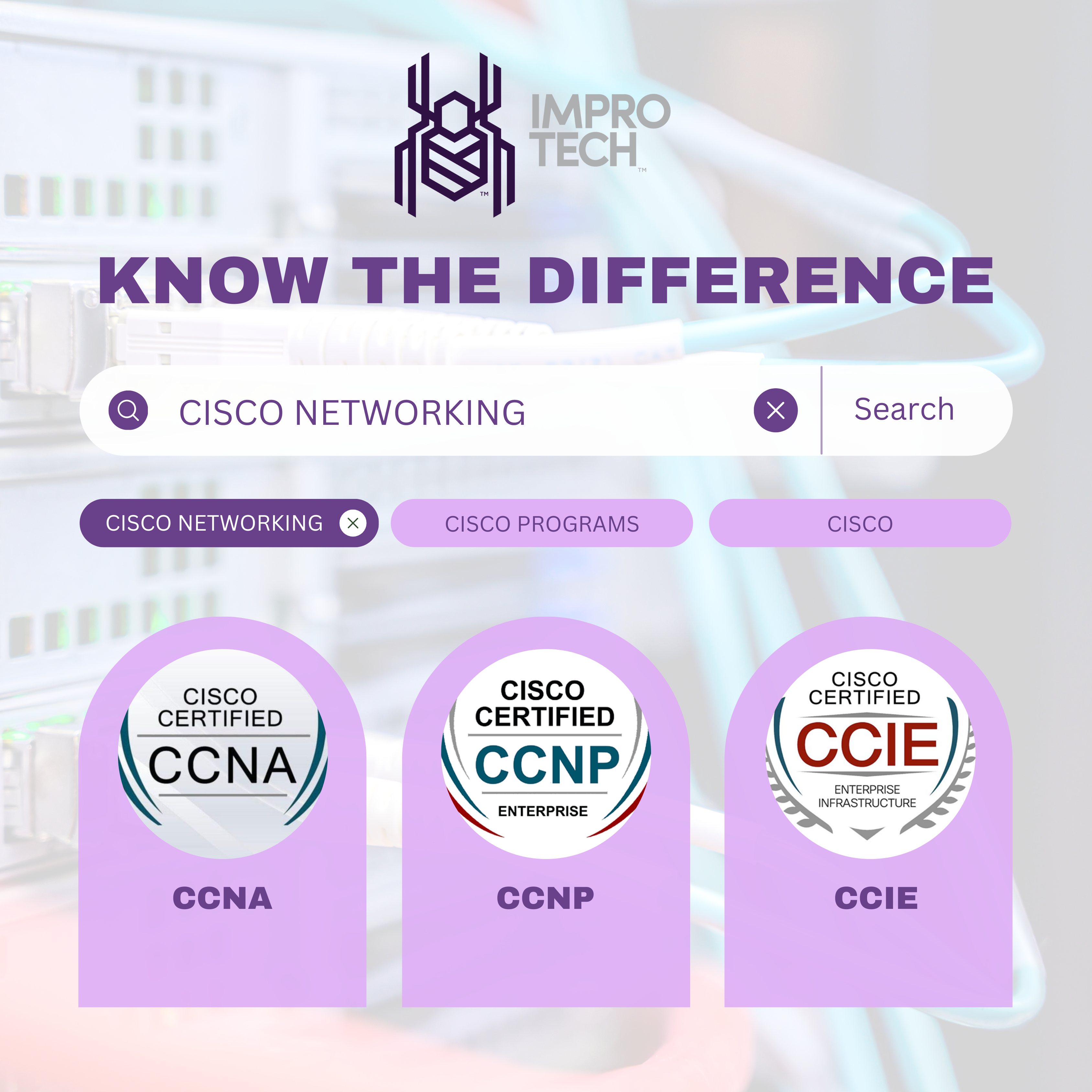

If you're exploring a career in networking or aiming to level up your skills in the IT infrastructure space, you've likely come across certifications like CCNA, CCNP, and CCIE. These certifications, offered by Cisco, are globally recognized and widely respected in the IT industry. But what exactly do they mean, and how do they differ from one another?
In this blog post, we break down the differences, levels, prerequisites, and career paths for each Cisco certification so you can make the best choice for your career journey.
Beginners or entry-level networking professionals.
The CCNA is the starting point for anyone looking to enter the world of networking. It covers the fundamentals of networking, including IP addressing, subnetting, switching, routing, and basic security concepts.
Network access and connectivity
IP services and addressing
Security fundamentals
Automation and programmability basics
CCNA 200-301
Network technicians
Support engineers
Junior network administrators
Professionals with some experience in networking who are ready to advance their careers.
The CCNP is a more advanced certification that dives deeper into enterprise networking concepts. It validates your ability to implement, troubleshoot, and optimize networking solutions at the professional level.
CCNP Enterprise
CCNP Security
CCNP Data Center
CCNP Collaboration
CCNP Service Provider
1 Core exam (e.g., ENCOR 350-401 for Enterprise)
1 Concentration exam in your chosen specialty
Network engineers
Systems administrators
IT professionals aiming to specialize in Cisco technologies
Senior-level networking professionals seeking expert recognition.
CCIE is Cisco’s most prestigious and difficult certification. It validates expert-level skills in complex network infrastructure design, implementation, and troubleshooting.
CCIE Enterprise Infrastructure
CCIE Security
CCIE Collaboration
CCIE Data Center
CCIE Service Provider
1 Written (core) exam
1 Hands-on lab exam (8 hours)
Senior network architects
Infrastructure consultants
Cisco solution designers
| Feature | CCNA | CCNP | CCIE |
|---|---|---|---|
| Level | Associate (Beginner) | Professional (Intermediate) | Expert (Advanced) |
| Prerequisites | None | Recommended: CCNA knowledge | Recommended: CCNP knowledge + experience |
| Focus | Networking fundamentals | Specialized professional networking | Advanced network design & troubleshooting |
| Exam Format | Single exam | 1 core + 1 concentration exam | Written exam + practical lab |
| Career Path | Entry-level IT, Helpdesk | Network engineer, IT specialist | Network architect, senior consultant |
If you’re just starting, the CCNA is the perfect place to begin.
If you already have hands-on experience or want to specialize in a particular domain, go for CCNP.
If you’re a seasoned professional aiming for the top, CCIE is your goal.
Each Cisco certification level builds upon the one before it. Whether you’re launching your IT career or aiming for expert status, there’s a Cisco path for you. Earning these certifications doesn’t just boost your resume — it sharpens your skills, opens doors to global opportunities, and increases your earning potential.
Ready to get started?
Explore our CCNA, CCNP, and CCIE training programs at Improtech Training Centre and take the next step toward your networking career today.